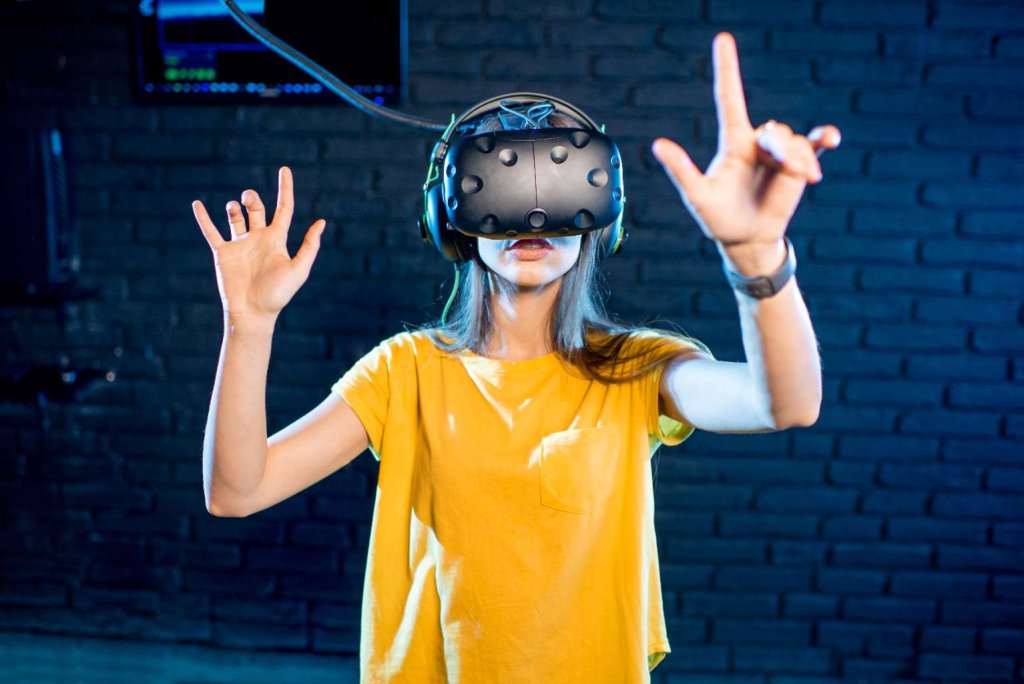The Growing Importance of Ethics in VR Technology
As Virtual Reality (VR) technology continues to evolve, the ethical landscape it navigates becomes increasingly complex. In the realm of market research, where VR’s potential for immersive consumer insights is immense, the need for a robust ethical framework is paramount. This necessity stems from VR’s profound impact on users’ psychological and physiological states.
Veris’s Commitment to Ethical VR Research Practices
Veris, a leading company in market analysis through VR, is committed to upholding the highest ethical standards in its research practices. Recognizing the profound influence of VR, Veris prioritizes the welfare and rights of its participants, ensuring that all VR experiences are both beneficial and respectful.
Understanding the Ethical Implications of VR
Assessing Physiological and Psychological Impacts of VR
VR’s immersive nature can have significant effects on the physiological and psychological well-being of users. Issues such as motion sickness, disorientation, and the blurring of lines between reality and virtual experiences pose ethical concerns.
Veris acknowledges these impacts and is dedicated to conducting research that minimizes these risks. The company takes a comprehensive approach, incorporating feedback from users and consulting with experts in psychology and physiology to develop VR experiences that are both safe and enjoyable.
By doing so, Veris aims to reduce instances of VR-induced discomfort and ensure that its virtual environments do not adversely affect users’ mental health.
Addressing Social and Behavioral Dynamics in Virtual Environments
In virtual environments, social and behavioral dynamics can differ significantly from the real world. Veris considers these differences in its VR research, ensuring that interactions within virtual environments are conducted responsibly and ethically.
The company recognizes the potential for VR to influence user behavior and social interactions, and therefore implements guidelines to promote positive and respectful interactions within its virtual spaces. This includes monitoring and moderating user interactions to prevent harmful behaviors and designing VR experiences that encourage positive social engagement. Veris’s commitment to ethical VR extends to fostering an inclusive and respectful virtual community, where users can interact safely and authentically.
Incorporating Ethics into VR Research Design
Anticipatory Technology Ethics: A Proactive Approach
Veris adopts an anticipatory approach to technology ethics, integrating ethical considerations into the design phase of VR experiences. This proactive stance ensures that ethical concerns are addressed before they become issues, aligning with the principles of responsible research and innovation.
By embedding ethical considerations into the very fabric of VR design, Veris aims to prevent potential misuse of technology and safeguard user well-being. This involves evaluating the potential impact of each VR scenario on users and making adjustments to prevent negative outcomes, such as undue stress or misinformation.
Moral Responsibilities and Long-Term Considerations in VR Development
The moral responsibilities associated with VR technology extend beyond immediate user experiences. Veris considers the long-term implications of its VR applications, from social involvement to environmental impacts, ensuring that its VR technologies are developed with a broader perspective in mind.
The company acknowledges its responsibility to not only its users but also to society as a whole, striving to create VR experiences that are beneficial, respectful, and sustainable. This long-term approach is reflective of Veris’s commitment to ethical standards that resonate with societal values and contribute positively to the evolution of VR technology.
Challenges in Predicting the Impact of VR Technologies
Foreseeable Use vs. Intended Use: Navigating Uncharted Territories
Veris recognizes the challenge in predicting how VR technologies will be used versus their intended purposes. The company takes measures to ensure that its VR applications are used ethically, mitigating the risks associated with unforeseen uses of the technology.
Veris implements a robust monitoring system to track how its VR technologies are utilized in the real world, allowing the company to identify and address any unintended or potentially harmful uses. By staying vigilant and responsive, Veris aims to maintain the integrity of its VR applications and ensure they contribute positively to users’ experiences.
Designers’ Dilemma: Ethical Questions in VR Application Development
The ethical dilemmas faced by VR designers are complex. Veris’s development team is trained to make decisions that consider the ethical implications of their designs, ensuring that all VR experiences are developed with a clear understanding of their potential impact.
This training includes workshops on ethical VR design, regular discussions on emerging ethical challenges in the field, and collaboration with external experts in ethics and technology. Veris’s commitment to ethical design is a cornerstone of its development process, reflecting the company’s dedication to creating VR experiences that are not only innovative but also responsible and respectful of users’ rights and well-being.
Regulatory and Legal Aspects of VR Research
Developing Standards and Guidelines for Ethical VR Use
Veris advocates for the development of industry-wide standards and guidelines to ensure ethical VR use. The company actively participates in discussions with regulatory bodies to help shape policies that protect users while encouraging innovation.
Legal Responsibilities and the Role of Regulators in VR Technology
Understanding the legal responsibilities associated with VR technology is crucial. Veris collaborates with regulators to ensure that its VR technologies comply with legal standards, protecting both the company and its users.
Benefits and Applications of Ethical VR Research
Positive Impacts of VR in Various Industries
When conducted ethically, VR research has the potential to positively impact various industries. From healthcare to education, VR offers innovative solutions to complex problems. Veris leverages these benefits, ensuring that its VR research contributes positively to society.
Veris’s Approach to Beneficial and Ethical VR Applications
Veris’s approach to VR research is grounded in ethical principles, ensuring that all applications are beneficial and respectful. The company’s commitment to ethical VR research not only enhances its reputation but also sets a standard for the industry.
















